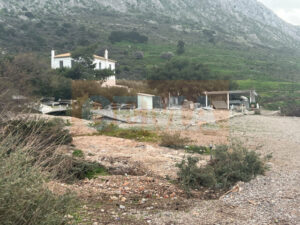The housing issue is high on the government’s agenda, as it is one of the burning issues in the daily lives of citizens. In this context, Prime Minister Kyriakos Mitsotakis, in two weeks’ time from the platform of the TIF, will unfold the framework of the government’s intervention in order to give real respite to thousands of households facing a serious problem, both because of expensive rents and the lack of houses on the market.
In the economic staff and in the Mansion House, they are working on a package of interventions that has the sole aim of increasing the supply of housing for rent and, through this, the reduction of prices, in order to make the acquisition of housing affordable for households.
It is reported that this objective will be sought to be achieved through multi-layered solutions rather than through a single intervention. Broadly speaking, the aim is to open up closed apartments that are either inactive by choice or in poor condition and cannot be rented. At the same time, the aim will be to discourage landlords from offering their apartments for short-term rental and return them to the long-term rental market.
The first objective is thought to be achievable by introducing incentives and disincentives for closed apartments. In fact, the ADE is already starting to register them in order to have a clear picture of their number, as estimates vary. Some say 200,000 properties, while others say 600,000.
It will also be sought to have a clear picture of the condition of each property, so that any interventions can be decided accordingly.
It is also expected that the supply of housing will be improved by the implementation of the decision to increase the threshold for the Golden Visa from the current 250,000 euros to 800,000 euros. The measure will be implemented from September 1.
On the other hand, the Panhellenic Federation of Property Owners (POMIDA) believes that incentives should be given rather than punitive disincentives, such as the increased ENFIA for closed apartments.
According to the scenarios that exist so far, the government’s interventions will move, among others, along the following six axes:
1. Closed apartments: The government believes that there is a huge stock of inactive properties, which under certain circumstances can affect the supply of housing in the market. The process of developing them will begin by recording their characteristics, such as their location and condition, to see how they can be put to better use.
2. Short-term leases: Changes will come to the operation of the market, with interventions mainly of a fiscal nature and increased rates. Also, it is likely that a limit will be set, depending on the area, on property leasing or a combination of the two.
3. Real estate registry: the creation of a platform for the public posting of real estate data is under consideration to enhance transparency in the market. The platform will include information on sale and rental prices, with the aim of combating tax evasion and providing better information to the public.
4. “My House II”: the government is awaiting approval from Brussels for the inclusion of the second stage of the “My House” program in the Recovery Fund. The new stage of the program, with a budget of €2 billion (of which €1.7 billion from EU funds), will include changes to the age and income criteria, as well as to the conditions for the value and age of the property.
5. “Social rent”: the program will provide low-rent housing from the dormant public property. It is planned to build more than 2,500 homes for citizens up to 39 years of age, with the possibility of purchase after a certain period of time.
6. Renovate-Renovate: The program will be enhanced by increasing the subsidy for repair work on closed apartments to enter the rental market.
These initiatives are expected to help solve the problems of the property market, enhancing accessibility for citizens and offering solutions to the housing crisis that affects many in Greece.
Ask me anything
Explore related questions





